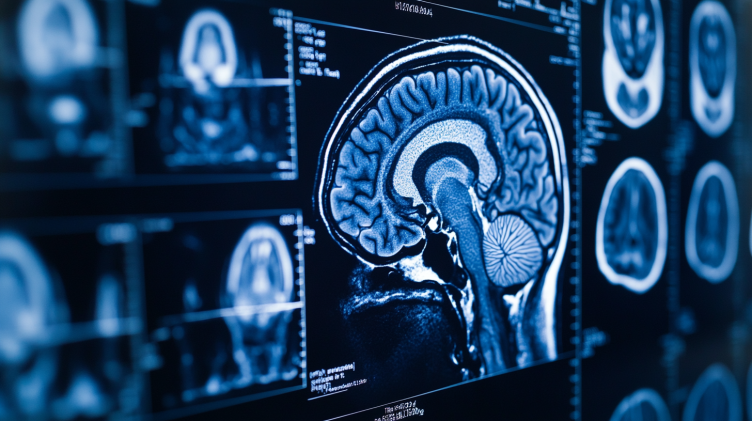When we think about the risk factors for Alzheimer’s disease, many immediately focus on jobs that demand significant cognitive activity. People often associate high-pressure roles, such as doctors or researchers, with a lower risk of Alzheimer’s. These professions involve constant thinking and problem-solving. However, a surprising new study from Harvard Medical School challenges this assumption. It found that taxi and ambulance drivers have the lowest Alzheimer’s death rates among 400+ occupations.
The Harvard Study: Cognitive Decline Insights
In December 2024, researchers at Harvard Medical School published a study in the British Medical Journal. The study analyzed death data from nearly 9 million people across 443 professions. Among the findings, taxi and ambulance drivers stood out. They had Alzheimer’s death rates of just 1.03% and 0.91%, respectively. This discovery leads to an interesting question: Why are these professions so protective against the disease?

Research screenshots
The Role of Navigation in Alzheimer’s Risk
The key to understanding these results might lie in the drivers’ need for frequent spatial navigation. Both taxi and ambulance drivers are constantly making quick decisions about routes. These decisions demand real-time cognitive effort, especially in unpredictable environments. This continuous mental challenge likely strengthens the hippocampus, a part of the brain essential for memory and navigation. Over time, this cognitive exercise may reduce the risk of Alzheimer’s.

Comparing Different Driving Professions
While taxi and ambulance drivers face constant cognitive challenges, not all driving-related jobs have the same effect. For example, bus drivers and pilots follow fixed routes. They don’t need to make spontaneous navigation decisions, leading to higher Alzheimer’s death rates. Bus drivers have a rate of 3.11%, while pilots have a rate of 4.57%. This highlights the importance of real-time problem-solving in reducing Alzheimer’s risk.

Cognitive Reserve and Alzheimer’s Protection
These findings are consistent with previous studies showing that professions requiring complex cognitive tasks protect against Alzheimer’s. Research on London taxi drivers showed that their hippocampi undergo structural changes due to their navigation demands. This structural change may protect against the cognitive decline characteristic of Alzheimer’s. Maintaining a job that requires such mental effort could offer long-term brain protection.

Preventing Alzheimer’s After Age 40
Alzheimer’s disease typically begins with memory loss. It often starts with short-term memory problems, which gradually worsen. Over time, individuals may forget long-term memories. They may even lose the ability to recognize loved ones or remember their own identity. Research has shown that early signs of Alzheimer’s can appear 11 to 15 years before full symptoms emerge. Brain scans have revealed changes in the medial temporal lobe, associated with memory loss, years before symptoms are noticed.

Seven Ways to Prevent Alzheimer’s Disease
The 2024 Alzheimer’s Early Prevention Guidelines released by China offer valuable advice for preventing Alzheimer’s. These guidelines emphasize the importance of lifestyle changes to reduce the disease’s risk:
- Maintain a Positive Outlook and Stay Social
A positive outlook is crucial for reducing Alzheimer’s risk. Engaging in social activities can improve mental health. It reduces loneliness, anxiety, and depression, all of which are risk factors for Alzheimer’s.

- Lifelong Learning
Constantly engaging in activities that challenge the brain is important. Learning new skills, such as a foreign language or playing an instrument, can help keep the mind sharp. - Regular Exercise
Regular physical activity is one of the best ways to protect the brain. Aerobic exercise improves overall cognitive function. Resistance training, such as weightlifting, also helps preserve brain health.

- Avoid Smoking and Limit Alcohol
Smoking and excessive alcohol intake are major risk factors for Alzheimer’s. Avoiding these habits can significantly lower the chances of cognitive decline. - Get Enough Sleep
Aim for 6 to 8 hours of sleep per night, especially after the age of 60. Sleep is essential for consolidating memories and maintaining brain health. Poor sleep is a known risk factor for Alzheimer’s. - Eat a Brain-Healthy Diet
A balanced diet rich in vegetables, nuts, and whole grains supports brain health. The MIND Diet emphasizes plant-based foods and limits unhealthy fats and sugar.

- Maintain Healthy Weight and Control Blood Pressure
Obesity, high blood pressure, and diabetes are all linked to Alzheimer’s. Maintaining a healthy weight, managing blood sugar levels, and controlling blood pressure can protect against cognitive decline.
Conclusion
The surprising connection between driving and a reduced risk of Alzheimer’s highlights the importance of keeping the brain active. Professions that require real-time problem-solving, such as taxi and ambulance driving, offer valuable cognitive stimulation. Additionally, maintaining brain health through lifelong learning, physical exercise, and a healthy lifestyle can further protect against Alzheimer’s.



















